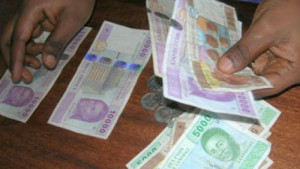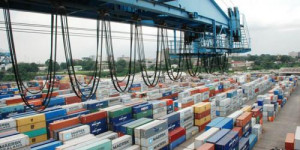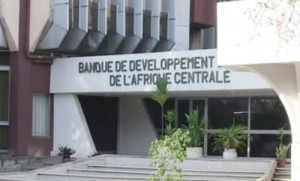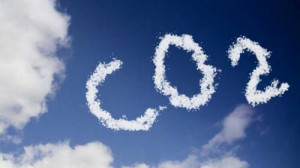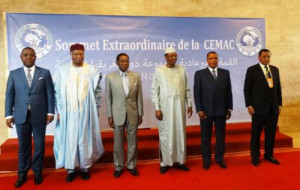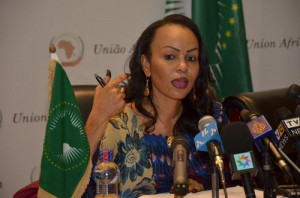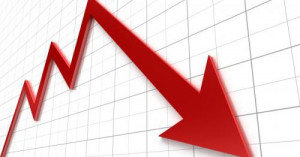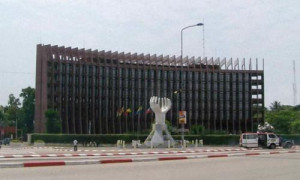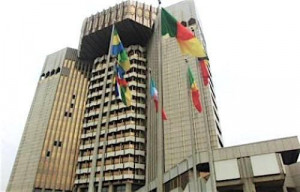
Cemac: Sluggish loans, asset repatriation resulted in banking over-liquidity in H1 2018
During the first half this year, banks operating within the Cemac area experienced an excess liquidity, the Central Bank (Beac) said in a monetary policy report issued October 2018.
“Over the second quarter of 2018, banking liquidity improved across the Cemac region, amping up the excess liquidity of the system,” Beac informed.
This situation is mainly perceived through the rise in banks’ gross reserves ( both free and required reserves) which “grew from CFA1,606.2 billion a year ago to CFA1,932.6 billion in July this year, an increase by 20.3% compared with -30.8% the same period in 2017”.
Meanwhile, the report said, “the year-on-year evaluation showed a continued growth of the share of reserves in banks’ balance sheet since the end of 2017”. Likewise, the loan-to-deposit ratio reached 110% at the end of July 2018, up 5.3 points compared to the same period last year, mainly due to “the increase in customer deposits (+3.2%), combined with a decline in loans (-1.8%),” explains Beac.
Overall, this upward trend in bank liquidity “can be explained by the sluggishness of bank loans, in line with that of non-oil activity”, as well as “the repatriation of foreign assets held by commercial banks, following the strengthening of plausibility checks carried out by the Banking Commission (Cobac) on all banks in the sub-region”.
Brice R. Mbodiam
Cemac: Inflation predicted to surge as of 2019, but to remain below the tolerance level (BEAC)
Inflation within the Cemac region is forecasted to slightly accelerate in 2019 and 2020, the Central bank Beac said.
“The year-on-year inflation rate is expected to be around 2.2% at the end of 2019 and 2.4% at the end of the first quarter of 2020, compared with 1.4% in 2017 and 2.2% at the end of 2018,” BEAC announced in its monetary policy report published late October 2018. The higher inflation will nevertheless remain below the 3% tolerance threshold set in the CEMAC zone, the bank pointed out.
According to the report, it is mainly the result of the increase in taxation as Cemac countries plan to improve tax revenues, subsequently causing the rise in consumer prices. Other reasons include the strength of domestic demand, supported by the increase in budgetary revenues; the rise in fuel prices in Gabon coupled with continued increase in the sub-region, due to oil indexation on world crude oil prices”.
BRM
Cameron accounted for CFA430bn of the CFA1,035bn of French exports to CEMAC in 2017
The French business association in Cameroon (Cafcam) reported that French exports to Central Africa (CEMAC and DR Congo) in 2017 amounted to €1.58 billion (nearly CFA1,035 billion), including €657 million (CFAF 430.33 billion) to Cameroon.
This implies, according to Cafcam, that Cameroon is France's main partner in Central Africa, oil sector excluded. Therefore, the organization encourages French investors to settle businesses in the country. Development and modernization projects in agri-food, agriculture, sugar and fisheries sectors, among others, are expected in the coming years (slaughterhouse construction, agri-food processes, etc).
In addition, sources said the European country is the second largest wine supplier to Cameroon. Between 2011 and 2016, wine export to Cameroon from France increased by 50% while spirits supply rose by 17%. In the construction sector, growth is estimated at 7% a year. Demand is high with various public and private projects.
With regard to digital technology, local companies are getting more and more digitalized and the cloud & IT security concepts are spreading. The telephony market is growing and new services are designed every day (e-commerce, mobile payment, Apps...).
In the health sector, there is a strong demand for specialized equipment, materials, furniture and consumables. Para pharmacy and cosmetics markets have increased by 61% in recent years. In energy sector, “with more than 600,000 b/d cumulated in Cameroon, Gabon and Congo, the hydrocarbon and oil sector is an important sector of the economy in Central Africa,” Cafcam reports.
S.A
CEMAC: Bdeac and Attijariwafa commit to speed up the financing of structuring projects
CEMAC countries (Cameroon, Central African Republic, Chad, Congo, Equatorial Guinea, and Gabon) will benefit from the support of the Development Bank of Central African States (Bdeac) and Attijariwafa for structuring projects.
Last October 29, the President of Bdeac, Fortunato-Ofa Mbo Nchama, and the President of Attijariwafa Bank Group, Mohamed El Kettani, signed a partnership agreement in Morocco with the view to pull efforts together to this end.
Through this protocol, official sources indicate, the two institutions agree to cooperate in areas including mobilizing long-term financial resources on the international financial market, sharing information on financing opportunities, co-arranging and structuring projects, technical assistance and capacity building, etc.
Attijariwafa Bank is committed to actively supporting its financial partner as a leading arranger, lender, and credit and collateral agent for several major projects in various sectors (infrastructure, energy, industry and telecommunications).
S.A
CEMAC States plan to implement the civil aviation carbon reduction scheme in 2019
From last October 30 to November 1, about thirty officials from the CEMAC zone gathered in Douala, the economic capital of Cameroon, to discuss the Carbon Offsetting and Reduction Scheme for International Aviation (CORSIA) which will come into force next year.
In this wake, the CEMAC member countries, all of which are low-pollution countries, have been invited by the International Civil Aviation Organization (ICAO) which launched the scheme to participate in the pilot and early phases as volunteers, a report of Cameroonian civil aviation revealed. According to the document, the meeting in Douala would allow CEMAC States to start monitoring air carriers' CO2 emissions in their respective countries using the Corsia system's Monitoring, Notification and Verification tool.
ICAO said aviation's contribution to CO2 emissions is only 2%, but if nothing is done, it could increase because air traffic is growing exponentially. For this reason, the Corsia program was launched to protect the environment and reduce global warming.
S.A
CEMAC Heads of State reiterate their commitment to a coordinated response to crisis
Gathered for an extraordinary summit October 25 in Ndjamena, the capital of Chad, the Heads of State and Government of the Central African Economic and Monetary Community (CEMAC), reiterated their commitment to a coordinated exit from the crisis in the sub-region.
To this end, they encourage the region’s central bank to pursue applying measures necessary to the crisis' strategy, the recovery of the CEMAC economies and the maintenance of monetary and financial stability.
The CEMAC Commission was required to strengthen the prudential supervision of credit institutions in order to ensure the stability of the sub-regional banking system.
In addition, the Conference of Heads of State instructed ministers in charge of negotiating or monitoring the economic program with the International Monetary Fund (IMF) to efficiently implement reforms crucial to economic recovery.
Let’s mention that the IMF's economic program started since December 2016, following a growth decline to -0.4% during the year, a level never reached in the last 15 years. As well, budget balances were all in deficit.
S.A
CEMAC commission forecasts a CFA81.44 bn budget for 2019
Fatima Haram Acyl (photo), Vice President of the CEMAC Commission presented on October 19 in Malabo, Equatorial Guinea, the community’s 2019 draft budget.
This presentation, before the members of the Inter-State Committee, showed that the budget forecasts should be valued in terms of revenue and expenditure at CFA81.44 billion for the 2019 financial year. Revenues from the Community Integration Tax (CIT) are expected to reach CFA57 billion, despite its potential estimated at CFA99.7 billion.
Following talks on this draft budget, forecasts will be submitted to the Council of Ministers of the Central African Economic Union (UEAC), which is being held today October 23.
Yet, “expenditure forecasts are expected to remain relatively stable in 2019 compared to the current year,” Fatima Haram Acyl stressed.
S.A
Cemac: Beac drops growth projection back to 1.9% for 2018
While last July the Bank of Central African States (Beac) revised upwards CEMAC's growth outlook from 1.9% to 2.5% for 2018, it has just dropped the figure back to the 1.9%.
This however reflects an improvement compared to the 0.2% in 2017, thanks to an increase in oil sector (+4.7%) and in non-oil sector (+1.3%).
Yet, the statement signed by Jean-Marie Ogandaga, Gabonese Minister of Economy and statutory Chairman of the BEAC Board of Directors, does not explain this forecast change; it just features “updated macroeconomic outlook for 2018”.
The central bank expects the general price level to rise to around 1.5% in 2018 from 0.9% in 2017. In addition, it expects an increase in the budget balance surplus to 1.4% of GDP, from -3.1% of GDP in the previous year.
S.A
CEMAC: The amount mobilized by treasuries on the sub-regional securities market grew by 54%, in late August 2018
At the end of August this year, CEMAC’s national treasuries raised CFA1,349.7 billion on the sub-regional securities market, showing a surge by 54% compared to the same period in 2017. As well, the figure reflects an improvement by 36% points in the issuance average coverage rate (152.7%).
This was revealed following the year’s third ordinary session of the Supervisory Board of the Securities Settlement and Depository Unit (CRCT) of the Bank of Central African States (Beac), held in Yaoundé last September 26.
The meeting headed by the statutory chairman Abbas Mahamat Tolli, reviewed, among others, the major achievements on the market of government securities issued by auctions organized by the Beac, during the period. However, the Board deplored the increase in issue costs and the decline in purchases and sales on the secondary market.
Let’s note that during the same period last year, CRCT already reported a persistent preference for short maturities, rising program costs and sluggish buy-sell operations.
S.A
CEMAC: The once-poor interbank market is getting more dynamic, boosted by repo mechanism
CEMAC’s interbank market is getting more dynamic thanks to the delivered repurchase agreement (repo) mechanism which is a financing technique characterized by an exchange of marketable securities with cash for a fixed period of time under a framework agreement between parties. This was announced by Aboubakar Salao, member of the audit committee of the Bank of Central African States (BEAC).
“Between June and July (this year), 75 framework agreements were signed, including between local and foreign banks,” he said during a “Capital markets in Central Africa: challenges and opportunities” seminar recently organized by the International Finance Corporation (IFC) in Yaoundé. “In July 2018, there was a proliferation of transactions on the interbank market,” he added.
Indeed, explained M. Salao, this mechanism compensated for the lack of secure financial products that were leading the market, insofar as the repurchase agreement allows the lender to automatically transfer ownership of the securities served as collateral by the borrower, once the repayment date of the debt has expired. “We don't even need to go to court to get this transfer of ownership,” concluded Aboubakar Salao.
Brice R. Mbodiam
Mags frontpage
- Most read 7 days
- shared 1 month
- read 1 month


